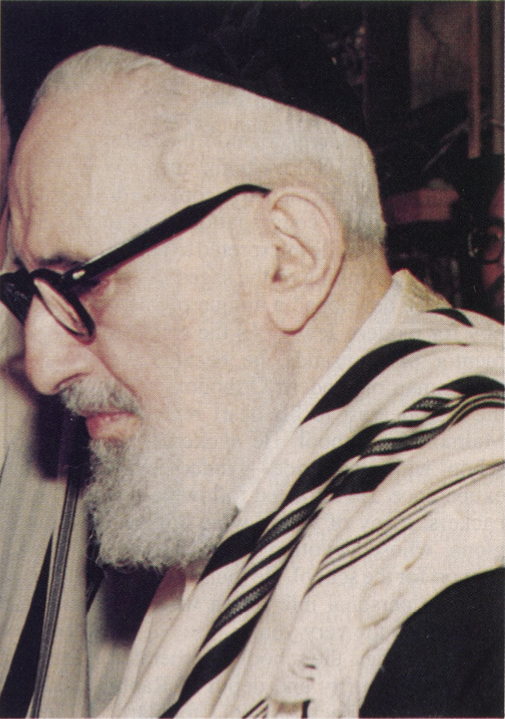For more than sixty years, the Boston Jewish community was blessed with the energy, dignity and wisdom of Rabbi Dr. Joseph B. Soloveitchik. He arrived in 1932, filling a communal position of religious leadership. Nine years later, succeeding his father as Rosh Yeshivah of Rabbi Yitzhak Elchanan Theological Seminary, he chose to remain a Bostonian and commute to New York.
Through the ensuing decades, the Rav’s weekly lectures endowed Boston with prominence in the world of Talmudic knowledge.
The heart of this bond between the revered scholar and his adopted city was a school. It began as a vision, which Rabbi Soloveitchik nurtured into New England’s first Hebrew day school, an institution that today is the embodiment of the Rav’s spiritual and intellectual values. Throughout his illustrious career, the school remained close to his thoughts and his heart—even in his image of the World to Come. Rabbi Soloveitchik often reflected that when asked by the Almighty to cite his most significant achievement on earth, his response would be the founding of Maimonides School.
As the city’s chief rabbi in the early 1930s, Rabbi Soloveitchik shouldered a range of responsibilities, and quickly recognized a vacuum in Jewish education. In the autumn of 1937, the Rav and a core of some twenty-five adherents established what would become Maimonides School. The Rav engaged teachers like Rabbi Isaiah Wohlgemuth, trained in classical European yeshivot, to rebuild that lost world in a manner that was unique to the New World.
The principles that have served as the school’s foundation are delineated in the original charter: instruction in Orthodox Judaism, including both “religious and literary work,” and secular education “covering all subjects taught in elementary and high school grades of our public schools.” The school, the charter explains, would “help the youth of our city and state to become fitted for true American citizenship, manhood and womanhood…” A graduate recently declared that the most singular characteristic of Maimonides history is that “it continues to embody the values of its founder.”
Maimonides Educational Institute was not welcomed by Boston’s Jewish establishment, which embraced public education as the stepping-stone to the American dream. Yet just four years later, enrollment had grown more than four fold and the day school acquired its first building. The merit of this alternative to conventional after-school learning was becoming apparent: the community, Rabbi Soloveitchik observed, “is beginning to accept its responsibility with regard to the education of our children.” Boston Jewry, he asserted, was realizing “that the most wholesome type of Jew is one within whom is integrated the secular knowledge that fits him for the American scene, and the religious and spiritual wealth of his own tradition that provides him with an unfailing source wherewith he can add to that scene.”
Together with his cherished Rebbetzin, the Rav sustained the school through infancy and adolescence. He chose to travel between Yeshiva University and his home in Boston, rather than relocate, because of his commitment to the school and to the fledgling school community. Rabbi Wohlgemuth, who has served on the Maimonides limudei kodesh faculty since 1945, recalls that Rabbi Soloveitchik, “by his charm and wit,” overcame all obstacles. “When there were insufficient funds to pay the very modest salaries of the rebbeim, he turned into a fund-raiser. When the heating system broke down, he invited the classes to his home.”
Maimonides School was the unique innovation of its founder. He established an institution with the goal of educating not only aspiring rabbis and Talmud scholars, but the future Jewish laity. The students, men and women, became familiar with the spectrum of Jewish tradition and text. Rabbi Soloveitchik also asserted that Torah studies are in harmony with secular studies. “He was not afraid of modernity. He welcomed it,” recalled one Maimonides School graduate. “To him, Torah studies and secular studies come together to make an individual into a better person and a better Jew.” He believed that this concept of Torah that is all-inclusive and harmonious with the world at large can best be transmitted under one roof. The school’s first graduating class—three men and three women—accepted diplomas in 1953, a powerful symbol that the unique combination of Judaic and secular education was working.
As a Rosh Yeshivah for more than four decades, Rabbi Soloveitchik inspired thousands of young men to become leaders of American congregations. As a brilliant lecturer, he interpreted to young and old the thinking of the sages. As an author, he developed a unique philosophy for modem Jewry. As the spiritual mentor of thousands, he became the spokesman of modem Orthodoxy. But the task dearest to his heart remained Maimonides School. He spoke of the school with great pride—indeed, with exuberance. He attracted followers and backers, many of whom were not religious, whose devotion translated into support for the school. He found time for frequent personal interaction with students, even the very young.
For decades, the school reverberated with the authority and depth of Rabbi Soloveitchik’s lectures, held regularly on Motzei Shabbat and Sunday mornings as well as on other important occasions. His words were treasured by hundreds of admirers throughout Boston Jewry. The lectures—and the very presence of the lecturer—enhanced Jewish life in the region for a generation.
For fifty-six years, Maimonides School has marked milestone after milestone, dedicating a permanent campus, expanding to more than 600 students and engendering esteem and appreciation from the greater community, in Boston and beyond. Every step along the way, the school has been accompanied by the Rav’s vision and example. This year [1993], Maimonides graduated its forty-first class—men and women whose understanding of modernity, and firm roots in the truth of the divine Torah, equip them well to help preserve Rabbi Soloveitchik’s legacy.
Michael Rosenberg is the former Executive Director of Maimonides School in Brookline, Massachusetts
